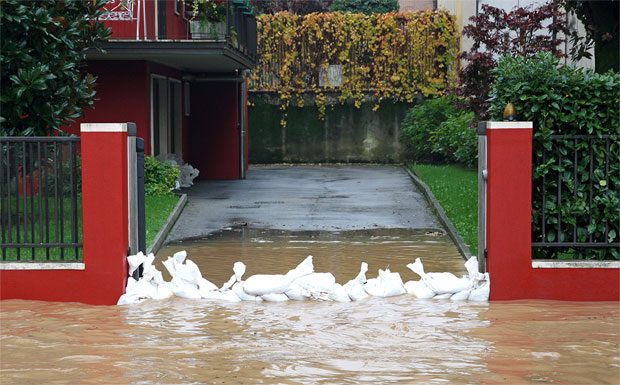How To Back Up Your Sump Pump To Prevent Basement Flooding
How To Back Up Your Sump Pump To Prevent Basement Flooding
Sump pumps are typically in basements that are likely to flood regularly. For this purpose, sump pits are formed in the first place. If the water table rises above the actual foundations of the house, this excess water can be drained through pipes and be directed towards these pits and away from the basement.
The entire push of this process lies with the sump pump as it propels the water to move through the drainage system and into the sump pit and consequently leaves your crawlspace and/or basement completely dry. Knowing that a sump pump plays such an essential role in your house, it is necessary to have backups on hand for emergencies, i.e., storms, flooding, excessive rain showers, etc. This site compares different backup pumps in case your original one gives out.
- Primary Sump Pump
Your basement has probably got a primary sump pump to take care of standard flooding hazards. It is a staple for most basements and a good one at that, as it can pump out thousands of gallons of water at a time to prevent flooding. Primary sump pumps are of two main types, and it is likely that you have either one of the two already installed.
One is the pedestal pump while the other is called the submersible pump. As evident by their names, the pedestal pump is kept elevated above the water to protect the motor, while the actual pumping mechanism is immersed in water to pump out water. On the other hand, the submersible pump can be completely submerged under the water to carry out the same task. Both are differently suited to different levels of water.
- Water Powered Backup Sump Pump
The water powered backup sump pump operates on an elementary principle, that is, it runs water through the pipe at a super rapid rate which causes a suction to be created that then helps in draining the sump pit and directed the water away from the basement. There are some significant pros to using this kind of backup pump.
Firstly, it is sustainable as it uses and maintains good water pressure from your municipal water supplier and offers long term functioning for this very purpose. Secondly, due to its working principle being based on water, it does not require batteries, so you do not have to check for battery usage or replace them. This is perfect for homeowners who tend to travel often and cannot be bothered to keep track of battery power.
- Battery Powered Backup Sump Pump
Unlike the water powered backup pumps, battery-powered backup pumps have been on the market for a more extended period and may be preferred due to this very reason. As evident by the name, they are powered by batteries to pump out water and are also somewhat more straightforward to install and use.
Battery powered back up pumps is most notable for their versatility as they can be installed in almost any house. Also, they offer exceptional horsepower when it comes to functionality. Most pumps can pump up to 3000 gallons of water in an hour. Although you will have to replace the batteries, most pumps typically have a battery life of three to five years so it shouldn’t be very inconvenient.
- Combinatory Backup Sump Pump
Looking for a good two in one deal? If yes, then this one for you! A combination pump comprises both a primary sump pump as well as a battery-powered backup pump. This ensures that if the primary pump even fails gives out then the battery back will start working and will remain functional in power outages as well.
- Sewage Sump Pumps
Sewage sump pumps are slightly different than regular sump pumps as they primarily deal with sewage waste instead of water. They start functioning automatically after installation and can be installed directly in a septic tank or another pumping chamber altogether.
Regular maintenance is essential to keep your unit operating well. For Sewage Treatment Plant Servicing or septic tank and pump station servicing, always hire a specialist.
Conclusion
It is always better to be prepared for any possible emergencies to avoid any damages. With these backup pumps your house will be safer than ever!
Guest Article. Contains a sponsored link.






